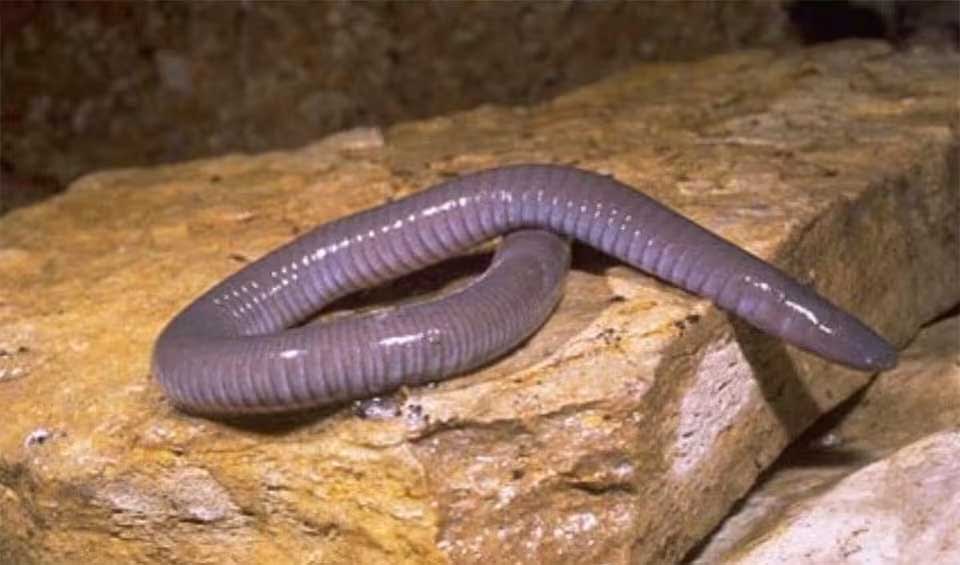Mexican burrowing caecilians exhibit a striking appearance, characterized by their sleek and glossy skin. Their dorsal surface typically displays shades of grey, brown, or olive green, while their ventral side is lighter in color. This skin texture is notably slimy, and researchers have likened the tactile sensation of touching it to gripping a bar of soap. This sliminess serves a purpose in their subterranean lifestyle, aiding in their movement through muck and soil.
One of their most remarkable aspects is their complete lack of arms or legs, a feature shared by all caecilians. Despite this apparent limitation, they are highly adapted for their subterranean existence. These amphibians rely on the strength of their muscular skulls and the muscles that run the length of their bodies to propel themselves through the soil and muck. This adaptation enables them to navigate their underground tunnels and burrows efficiently, highlighting their incredible adaptability to their environment.
Mexican burrowing caecilians are predominantly aquatic and subterranean in their habits. They spend a significant portion of their lives swimming in small streams and water bodies, where they can remain hidden beneath the water’s surface. Additionally, they engage in subterranean activities, utilizing their burrowing prowess to navigate and find shelter underground.
Currently, the conservation status of the Mexican burrowing caecilian is classified as “Least Concern.” This designation suggests that their populations are relatively stable and they are not currently facing immediate threats of extinction.
Distribution
 El Salvador
El Salvador Guatemala
Guatemala Honduras
Honduras Mexico
Mexico Nicaragua
NicaraguaAnything we've missed?
Help us improve this page by suggesting edits. Glory never dies!
Suggest an editGet to know me
Terrestrial / Aquatic
Altricial / Precocial
Polygamous / Monogamous
Dimorphic (size) / Monomorphic
Active: Diurnal / Nocturnal
Social behavior: Solitary / Pack / Herd
Diet: Carnivore / Herbivore / Omnivore / Piscivorous / Insectivore
Migratory: Yes / No
Domesticated: Yes / No
Dangerous: Yes / No




